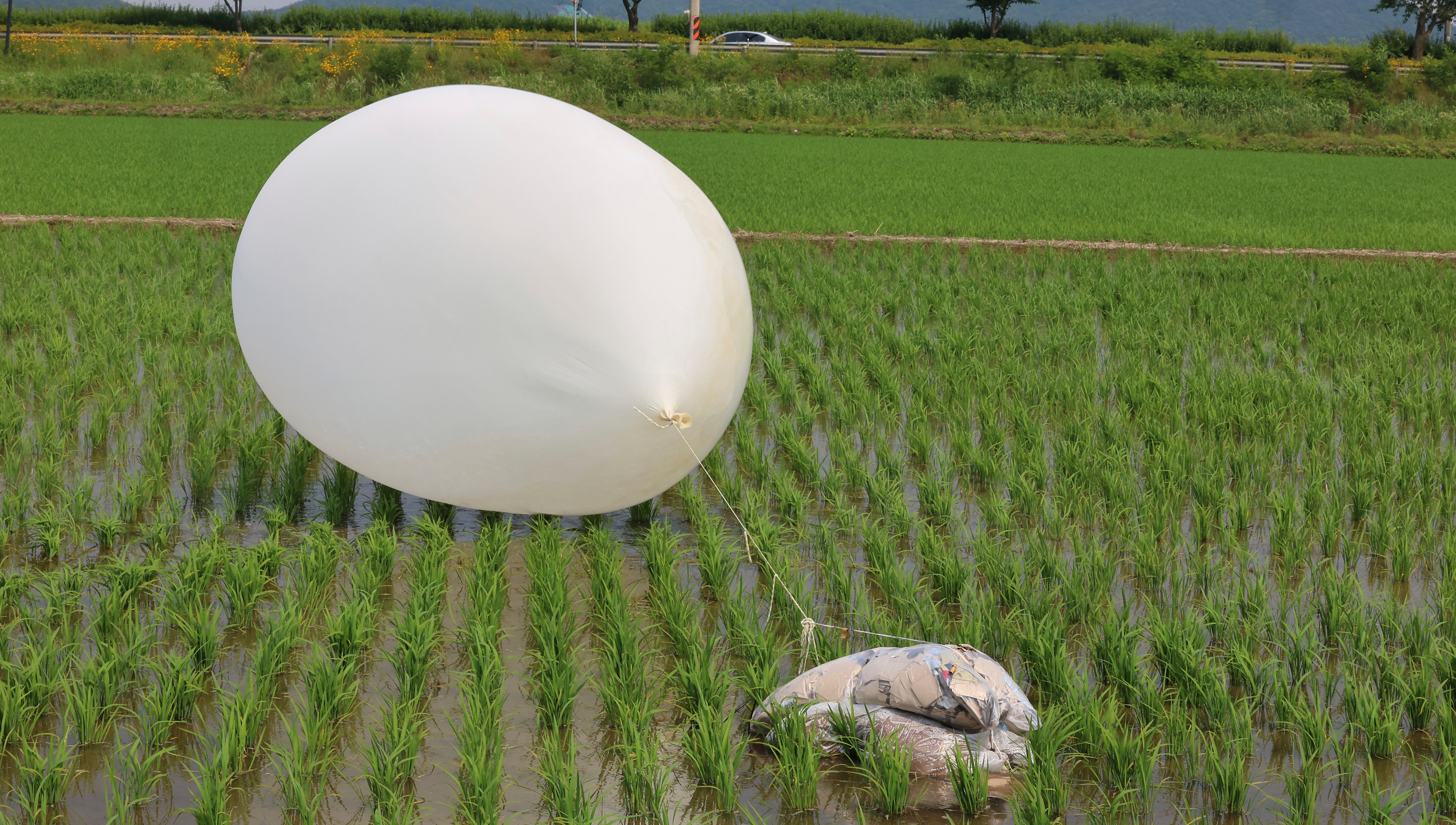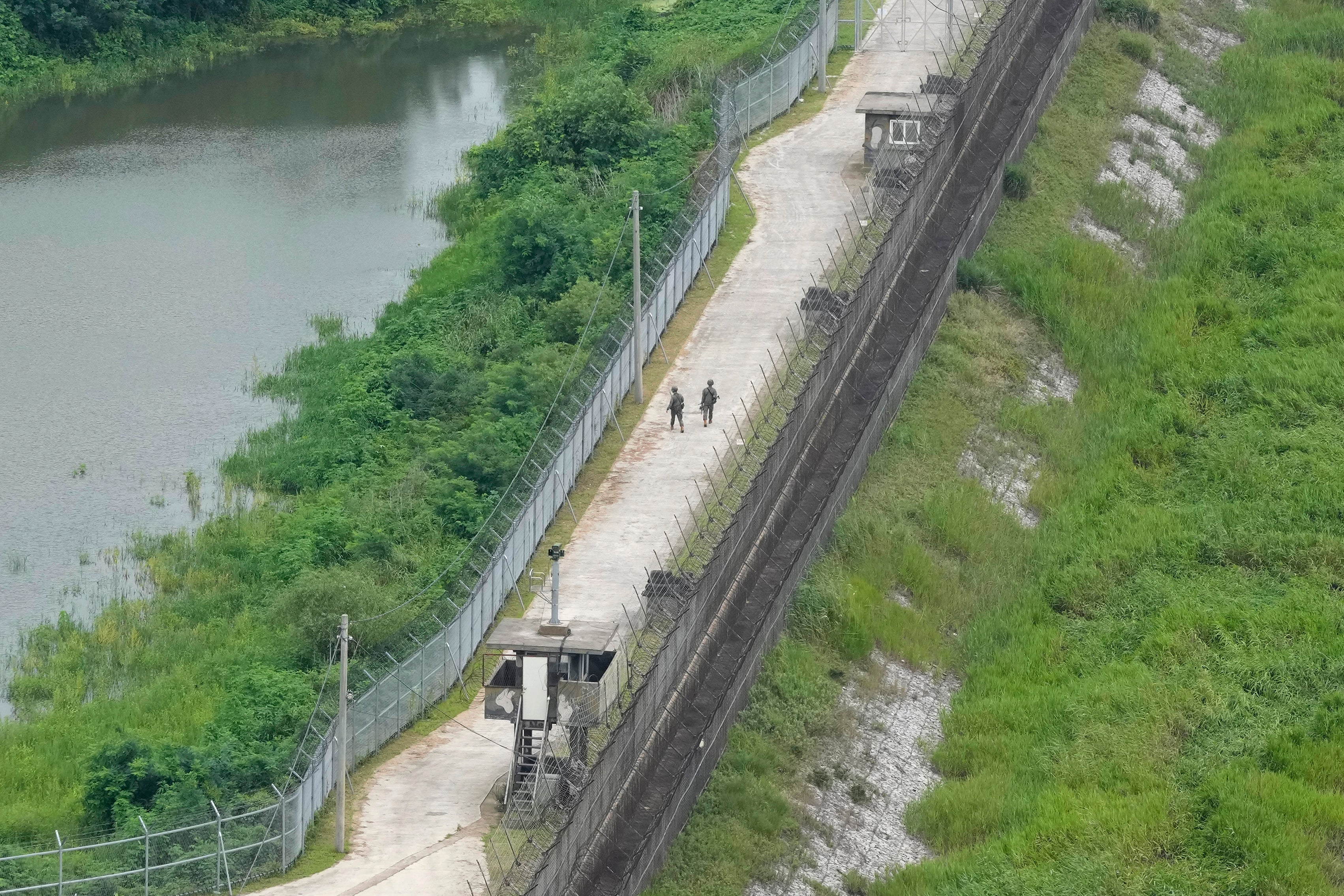South Korea warns North Korea will ‘pay a fatal price’ after new wave of trash balloons
South Korea says it will launch ‘full-scale’ loudspeaker broadcasts, blaring propaganda messages across the border

Your support helps us to tell the story
From reproductive rights to climate change to Big Tech, The Independent is on the ground when the story is developing. Whether it's investigating the financials of Elon Musk's pro-Trump PAC or producing our latest documentary, 'The A Word', which shines a light on the American women fighting for reproductive rights, we know how important it is to parse out the facts from the messaging.
At such a critical moment in US history, we need reporters on the ground. Your donation allows us to keep sending journalists to speak to both sides of the story.
The Independent is trusted by Americans across the entire political spectrum. And unlike many other quality news outlets, we choose not to lock Americans out of our reporting and analysis with paywalls. We believe quality journalism should be available to everyone, paid for by those who can afford it.
Your support makes all the difference.South Korea has warned that North Korea will pay a “fatal price” after Pyongyang flew a new wave of trash-filled balloons across the border, as Seoul blared propaganda loudspeaker broadcasts for the fourth day in a row.
South Korea’s Joint Chiefs of Staff said the balloons appeared to be flying towards the north of the capital, Seoul, after crossing the border.
The residents in the most populous northwestern Gyeonggi province were advised to be on alert for objects falling from the sky and not to touch the debris.
South Korea on Sunday said it would respond with “full-scale” loudspeaker broadcasts and warned that the North’s actions were raising tensions and could have fatal consequences.
“As we warned several times, the military will carry out loudspeaker broadcasts in full scale and on all fronts starting 1pm today,” the South’s Joint Chiefs of Staff said, calling the North‘s launch of balloons “vulgar” and “shameful”.

The two Koreas have ratcheted up tensions with a Cold War-style psychological battle after the suspension of a 2018 tension-easing deal that blocked the two neighbours from using such tactics.
North Korea began floating large balloons carrying waste paper, scraps of cloth, cigarette butts, waste batteries and manure in May, and more than 2,000 have landed in the country since.
The balloons have sparked warnings for residents and led to flight diversions, as well as a brief shutdown of Seoul’s Incheon International Airport after balloons landed on the tarmac.
The latest launch on Sunday, the ninth since May, came after days of South Korean loudspeaker broadcasts towards North Korea in response to an earlier balloon launch on Thursday.
The broadcasts ran on Friday, Saturday and Sunday from 6am to 10pm from speakers installed near the heavily fortified border, Yonhap reported.
“The North Korean military’s tension-escalating acts in frontline areas may lead it to pay a fatal price and we sternly warn that all responsibility for this situation lies with the North Korean regime,” the Joint Chiefs of Staff said.

The speakers blast K-pop songs and news on BTS member Jin’s torch-bearing ahead of the Paris Olympics as well as the recent defection of a senior North Korean diplomat – the kind of information that is banned from reaching North Koreans.
The broadcasts also called the mine-planting works by North Korean soldiers at the border “hellish, slave-like lives,” according to South Korean media.
These broadcasts can travel about 10km (6 miles) during the day and 24km (15 miles) at night.
After the suspension of the pact, the South Korean military resumed the propaganda broadcasts for about two hours on 9 June as a warning but refrained from using them again to avoid further tensions.
The South Korean military believes that the broadcasts can demoralise frontline North Korean troops and send out information to ordinary citizens, making a dent in Kim Jong-un’s authoritarian rule.
Join our commenting forum
Join thought-provoking conversations, follow other Independent readers and see their replies
Comments